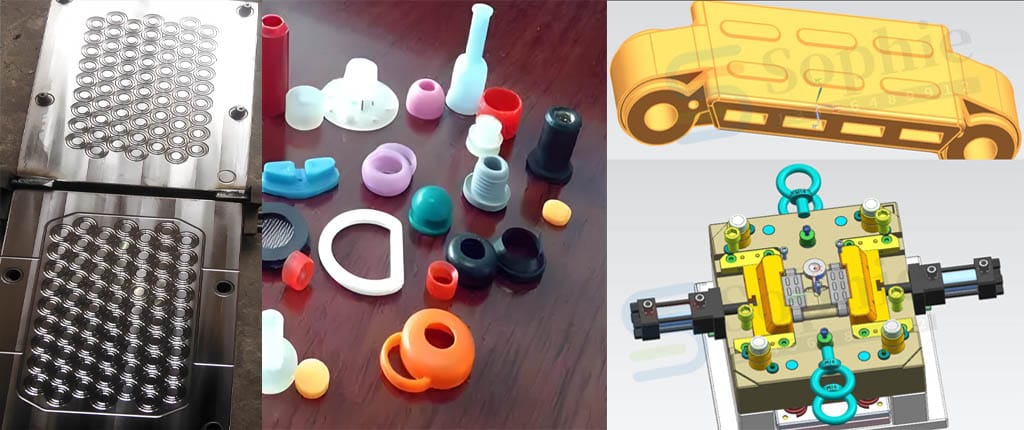How to choose the gate location for mould ? The gate of the injection mold is the channel that connects the main channel (or runner) and the cavity. The cross-sectional area of the channel can be equal to the main channel (or branch channel), but it is usually reduced. Therefore, it is the part with the smallest cross-sectional area in the entire runner system. The shape and size of the gate have a great influence on the quality of the product.
Table of Contents
Toggle1. Gate of mould
The gate is a short groove of small cross-sectional area which will connect runner and cavity. The cross-sectional area is therefore small, in order to obtain the following effects:
(1) Soon after the cavity is injected, the gate is cold
(2) The water outlet is simple
(3) After the water outlet is completed, only a few traces are left.
(4) Make the filling of multiple cavities easier to control
(5) Reduce the phenomenon of excessive filler

How to choose the gate location for mould
2. Gate location and size
(1) Place the gate at the thickest part of the product, and pouring from the thickest part can provide better filling and pressure-holding effects. If the holding pressure is insufficient, the thinner areas will solidify faster than the thicker areas. Avoid placing gates where the thickness changes suddenly to avoid hysteresis or short shots.
(2) If pouring from the center of product, placing the gate in the center of product,it can provide an equal flow length. The size of flow length will affect the required injection pressure. The central pouring will makes the holding pressure in all directions uniform,also canavoid uneven volume shrinkage.
(3) When the plastic flows into the runner, the plastic first cools down (cools) and solidifies when it approaches the mold surface. When the plastic flows move forward, it is only flows on the solidified plastic layer. And because plastic is a low heat transfer material, the solid plastic forms the green insulating layer and the retaining layer can still flow.
Therefore, ideally, the gate should be set in the position of the cross-runner layer to make the best plastic flow effect. In circular and hexagonal cross runners often have this situation,but trapezoidal cross runners can not achieve this effect, because the gate cannot be set in the middle of runner.
The following principles have to adhered to when deciding the location of gate :
1) The plastic material injected into each part of cavity should be as even as possible;
2) The rubber injected into the mold should maintain a uniform and stable flow front in each stage of the injection process;
3) The possible occurrence of welding marks, bubbles, pockets, virtual positions, insufficient glue injection and glue spraying should be considered;
4) The operation of the water outlet should be as easy as possible, preferably automatic operation;
5) The position of gate should be matched with all aspects.
There has no special rules for designing gates, and most of them based on experience, but there has 2 basic elements must be compromised:
1) The larger the cross-sectional area of the gate, the better, and the shorter the length of the channel, the better to reduce the pressure loss when the plastic passes through.
2) The gate must be narrow, so as to be easy to freeze and prevent excess plastic from flowing back. Therefore, if the gate is in the middle of runner, and its cross-section must be do as round as possible. However, the opening and closing of the gate is usually determined by the opening and closing of the module
3. Gate size
The size of gate can be determined by the cross-sectional area and the length of gate. The following factors can determine the optimal size of gate:
1) Rubber flow characteristics
2) The thickness of the module
3) The amount of compound injected into the cavity
4) Melting temperature
5) Male mold temperature


